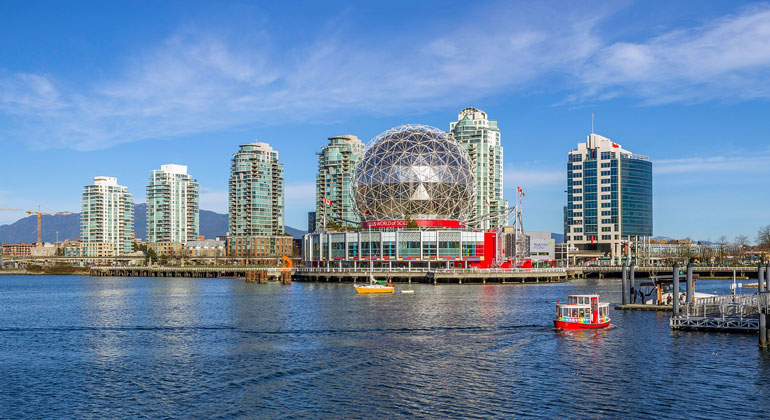Vancouver first city in the world to endorse the Fossil Fuel Non-Proliferation Treaty
City Council Unanimously Endorses a New Global Equitable Energy Transition Treaty
Vancouver officially became the inaugural city to endorse the Fossil Fuel Non-Proliferation Treaty. Endorsement of the treaty initiative aimed at advancing an equitable transition to clean energy and low-carbon solutions passed by unanimous vote.
Endorsing the Fossil Fuel Non-Proliferation is another illustration of Vancouver’s commitment to sustainability as outlined in its Greenest City in the World Action Plan and Climate Emergency Response Plan. The City of Vancouver is joining hundreds of organizations and individuals supporting the Fossil Fuel Non-Proliferation Treaty Initiative including Naomi Klein, Bill McKibben, Canadian Union of Postal Workers, Wilderness Committee, Communities Protecting Our Coasts, 350.org, World Future Council, Stand.Earth, Friends of the Earth and more.
A Fossil Fuel Fossil Fuel Non-Proliferation Treaty is critically needed to hold governments and the fossil fuel industry accountable for emissions from the production of fossil fuels. The United Nations Environment Programme states that national governments plan to expand fossil fuels at levels that would result in 120 percent more emissions than what is in keeping with the limit of 1.5 degrees Celsius of warming. Despite this threat, there is no mechanism in place to limit fossil fuel expansion. The United Nations Framework Convention of Climate Change and Paris Agreement do not even mention oil, gas or coal – the main source of emissions.
Tzeporah Berman, International Program Director at Stand.earth said
“By endorsing the Fossil Fuel Non-Proliferation Treaty, the City of Vancouver is sending a strong signal to provincial and federal governments that fossil fuel expansion cannot continue if the world is to avert the climate emergency. It is a call for other cities around the world to join Vancouver by endorsing the Treaty and adopting policies to limit fossil fuels in their communities. It’s time to keep people safe from the health, economic and climate risks of fossil fuels and we need bold new urgent ideas and international cooperation to do that.”
Vancouver City Councillor Adriane Carr, who moved the motion endorsing the treaty, said
“Cities like Vancouver are taking action on climate and we are putting our GHG emissions on a solid downward path. Yet all our good work is being undone by the expansion of oil and gas, which is driving up our country’s emissions. Vancouver City Council endorsed the Fossil Fuel Non-Proliferation Treaty unanimously because global cooperation is needed to backstop local efforts to hold the fossil fuel industry accountable for the risks they create for Canadians and people around the world.”
Naia Lee, organizer with Sustainabiliteens Vancouver, said
“Here in BC, climate change isn’t just a theoretical future—it is creeping up on us through the air outside of our windows. Expanding fossil fuel production prioritizes short term profit over the lives of future generations. Now, Vancouver City Council has confirmed the need for immediate, decisive climate action and put pressure down the line for other governments to follow suit.”
Dr. Kathryn Harrison, Professor of Political Science, University of British Columbia, said
“No city, country or company can stop the expansion of oil goad or coal alone and neither can we just depend on the markets. International cooperation will be necessary and cities can provide critical leadership at this moment in history just like they did nuclear disarmament.”
Many countries including Spain, New Zealand, UK and Costa Rica are placing limits on production and accelerating the adoption of clean energy. Canada is moving in the opposite direction, planning for oil and gas projects that would make it impossible to limit warming to 1.5C. Taxpayer dollars for Covid-19 economic recovery are being sunk into oil and gas with $12.79 billion to date for fossil fuel energy compared to $7.92 for clean energy.
Countries must be held accountable for emissions from fossil fuel production. International cooperation is needed to ensure governments start to phase out oil, gas and coal and advance an equitable energy transition. The Fossil Fuel Non-Proliferation Treaty will foster this cooperation, drawing lessons from global efforts to stop the spread of nuclear weapons and ban asbestos, ozone depleting chemicals, landmines and other threats to humanity. It will advance action under three pillars:
Non-Proliferation – Don’t Add to the Problem
An immediate end to the expansion into new reserves of coal, oil and natural gas would limit the globe’s production of carbon emissions (which if left alone would create more than twice over the limit set by the United Nations and other organizations).
Global Disarmament – Get Rid of the Existing Threat
Since existing oil and gas fields and coal mines contain enough carbon on their own, phasing out those current stockpiles is a much needed step to keep the world under the Paris Agreement’s temperature limits.
Peaceful Transition – Accelerate an Equitable Transition
Every worker, community, and country must be taken into the deepest consideration on the way to fast-tracking all solutions. Only a proactive plan to enable economic diversification, implement renewable energy and other reliable, cost-effective low-carbon solutions will be able to meet the needs of a sustainable future.
For more information on the Fossil Fuel Non-Proliferation Treaty, watch the introduction video.








